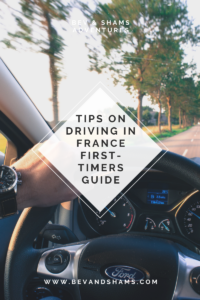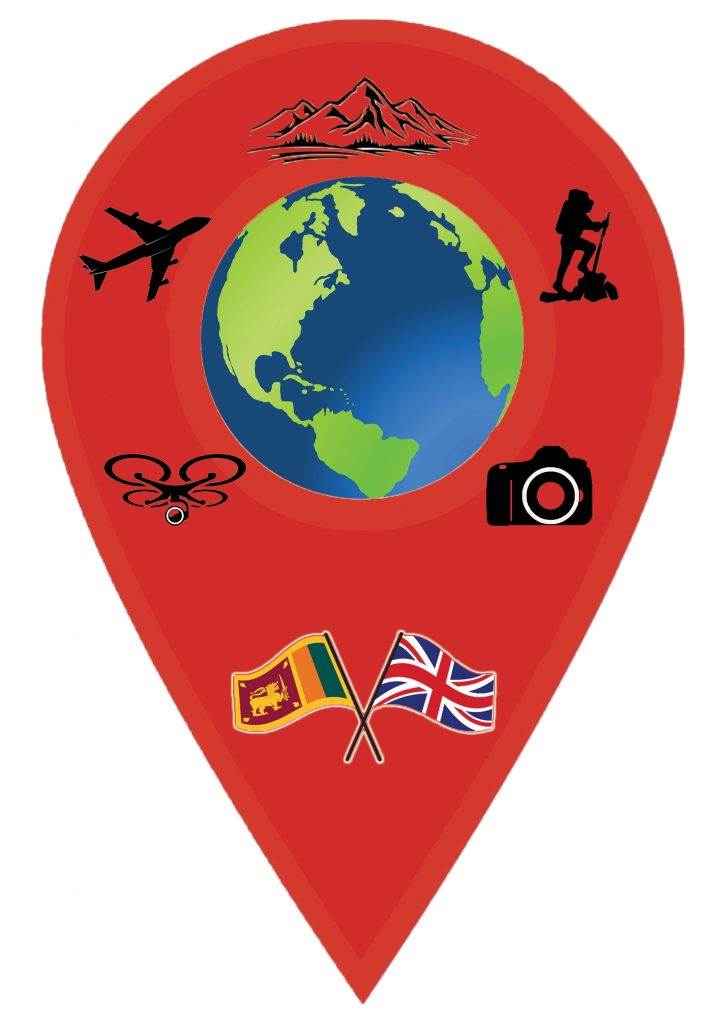Tips on driving in France – First-timers guide
Whether you’re a first-time driver to France, visiting on a day trip, or planned an adventurous road trip around France, no matter what, you’ll want to stay safe and legal. Help is at hand, with these tips on driving in France for first timers.
Could you just imagine driving down an open road in the French Riviera, heading to a beautiful destination? Nice huh. It really is this beautiful, easy and stress-free driving in France.
But if you’re driving in France for the first time, you may not be familiar with the road, rules of driving in France, whether France drive on the left, or right? And many more questions. We shared the same concerns you have on our first trip to France. We want to help you, as we share our tips and advice on driving in France for the first time.
Table of Contents
Tips on driving in France
First things first, before any long journey you must always check your vehicle has enough water, oil and that it is in good working condition. You really don’t want to breakdown in the middle of nowhere just because you don’t have water or oil in your vehicle.
There’re also some rules for driving in France, which we will cover later, but you must make sure you have these in your vehicle at all times, to keep you safe.
It will also be a good idea to ensure you have breakdown cover and car insurance. Make sure both have overseas cover.
So, let’s get into more details on these all-important tips on driving in France for first timers.
Which side of the road do you drive on in France?
In France and much of Europe, driving is on the right-hand side of the road. Travelling around a roundabout, will be anticlockwise.
If you are coming from a country like the UK, were we drive on the left, first-timers might find it confusing driving on the right. Especially on approach to a roundabout, or dual carriageway.
On our first driving trip to France, we took our vehicle from the UK, across on the ferry to Dunkirk. So, driving a right-handed vehicle on the right-hand side of the road, was a little challenging. But once we got used to it, it became easier.
In our opinion the most confusing is looking to the left on a roundabout and not to the right. On many occasions, we found ourselves looking to the right on a roundabout. Eventually you’ll start looking to the left.
Tips on what checks to carry out on your vehicle before you leave for France
To prevent breakdown, it is recommended to carry out some checks on your vehicle before you go.
Make sure you check the water in your radiator, check the engine oil and window washer fluid.
If you check these about a couple of weeks before you travel and top it up if required. Always check it about one week later to ensure there’s no leaks or issues. If you do identify any issues, these can be fixed before you travel.
It would also be a good idea and practice that you check your vehicle regularly including the lights and indicators. Make sure these are working correctly. If these are not, then you can get it fixed and replaced before you travel. You will need to ask a friend, partner, family or neighbour to help you check these are correctly working.
What do you need to carry when driving in France?
There are a few requirements for driving in France, these are:
Reflective/High visibility jacket (can be sleeveless)
A high visibility jacket or reflective jacket is a requirement for every occupant in the vehicle when driving in France.
This is for your safety, the safety of your passengers and for other road users. In the event you breakdown or have an accident, as you exit the vehicle, other road users can see you, which will prevent any further accidents.
The jacket must be in easy reach, there’s no point putting it in the boot, as you can’t get access to it when you need it.
EU Driving License/International Drivers permit
EU citizens will only need to take their full driving license. Non-EU citizens may require an International Drivers Permit.
We have written a post on tips and advice on how to get an international drivers permit.
Other documents
It is highly recommended to take proof of your car insurance. The minimum car insurance cover is third party cover. We have worked in the car insurance industry for many years and know the real benefits of having fully comprehensive cover. By having fully comprehensive cover, when travelling to France, you’ll have the benefit of getting your vehicle damages paid.
Taking out third party cover only, no matter who is liable, your vehicle won’t be dealt with under your own insurance. And if the other party dispute the liability, you could be in for a lengthy wait for your damages to be settled, if at all.
Get fully comprehensive cover NOW.
We would also recommend taking your passport as additional proof of identity (ID) and a copy of your V5 (registration documents, it might be called something else in your home country).
Make sure you have breakdown cover prior to departure. What is the worst that could happen, you breakdown and you have no overseas breakdown cover? If you don’t have cover, you could be paying a hefty bill to get your vehicle back on the road.
Country sticker
A country sticker is a way of identifying the country of origin of that vehicle.
If your vehicle number plate has the country of origin, you won’t require an additional sticker.
In our case, when we drove to France, we didn’t need to apply the GB sticker to our vehicle as our number plate has the GB identity on it.
Make sure you either apply the sticker or the number plate has the country initials.
Warning Triangle
This comes back to your road safety, the safety of your passengers and the others around you.
In the event that your vehicle should breakdown, the warning triangle will be placed a short distance away to warn other motorists that your vehicle is there.
This will aid other road users to identify the potential warning and take action.
Headlamp Beam Deflectors
If you are driving your own vehicle to France, that’s a right-hand drive, then you’ll be required to apply headlamp beam deflectors.
Headlight deflectors will prevent the dazzling of other road users.
The headlights on our vehicle from the UK, point towards the left-hand side of the road. At night, this helps us see the road ahead. But when driving in France in our vehicle, the headlights will be pointing straight into the oncoming traffic. With the deflectors, this will help to prevent the lights from dazzling the oncoming drivers, at the same time, we will have enough light on the road to see ahead of us.
If your vehicle is a left-hand drive, you will not require these deflectors.
Breathalyser
Do I need a breathalyser to drive in France? Yes, that’s right, you will need a breathalyser alcohol test kit with you or inside your vehicle.
France has a strict drink driving law and is required by law to carry them in the vehicle.
You should be able to purchase these in your home country at your local vehicle accessories shop.
Spare bulb kit
It’s possible that authorities may stop you and request that your change any defective bulbs. If you don’t have a spare bulb, you won’t be able to see clearly at night.
Fire Extinguisher
A fire extinguisher in the vehicle is not a legal requirement, but is recommended.
First Aid Kit
Same as above, a first aid kit is not a legal requirement, but is recommended.
Satnav
If you are taking a satnav to help you navigate around France, by law you must not have the speed camera alert activated.
If the authorities stop you and find that the speed camera alert is switched on, even if it has been silenced, you could face a fine, or worst confiscation of the device or vehicle.
What is the legal age to drive in France?
Providing you are over the age of 18 and hold a full driving license, which you can produce to the authorities, then you will be legally able to drive in France.
Conclusion
You could be driving to France from UK, Europe or anywhere in the world, these useful tips on driving in France, will help you to prepare for the drive, keep you safe and most importantly make driving in France easy.
We can’t wait to get back out there, hit the great open road and explore more of France with a road trip.
Have you driven in France? How was your experience of driving? Are there any tips on driving in France that we didn’t cover, but you feel should be included? Let us know, with a comment below.
Continue your France travel planning, with these useful posts:
- DFDS Review – Dover to Dunkirk route
- Tips on how to travel on a budget
- Travel gift ideas
- Things to do in Paris
- Hotel Ibis Gare du Nord – Hotel review
- Travel guide to France
- Day trip to Dunkirk
- Best virtual tours for free travel experiences
- How to stay safe while travelling
- What to include in your first aid kit
If you liked this post, please feel free to share it!



There may be affiliate links within this article, using these links will not cost you anything extra, but we may earn a small commission to help us maintain our travel blog. Thank you for your support.

